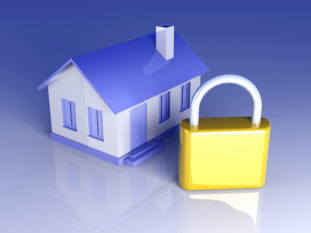
When you apply for a mortgage real estate security is most likely the home you purchase. For other types of properties banks usually want some type of tangible security type.
- What is a secured loan?
- What types of security do the banks look for?
For such large purchases as houses, businesses, and vacant land lenders want substantial collateral. Usually, they want the title to the property being mortgaged.
Click to Open Outline
Real Estate Secured Loan
A real estate secured loan for a mortgage is the property you use as collateral. In other words, you sign a promissory note stating that you will repay the loan, but if you do not then the bank has a claim to the property. Common examples of this type of loan are:
- First and second mortgages
- Home equity line of credit (HELOC)
- Commercial loans
All it means is that you pledge to repay your debt, and if you do not then the bank will take the property. They foreclose on the house.1
Lack of Real Estate Secured Loan Information
Lack of real estate secured loan information means that you don’t have a mortgage. Making regular, on-time payments greatly increases your credit score. While this will not greatly impact you getting a home loan, it can impact your ability to get other types of credit.
- A house purchase is a secured loan
- Collateral is usually the house you are buying
- Unsecured loans, such as credit cards, are far more interested in seeing your payment history
A lack of secured loans on your credit reports will reduce your credit score, and it may even affect your interest rate, but it probably won’t keep you from getting a mortgage.2
Secured Loans Help Credit Scores
Secured loans do help your credit score. In fact, they can be quite important for your credit rating. If you don’t make your house payment your lender forecloses. If you don’t make your car payment the bank repossesses your car.
- A home loan is often your largest financial commitment
- It is a very strong indicator of risk for a bank
They are easier to get than unsecured because they have underlying collateral. For an unsecured loan, there is no underlying asset for the bank to take, so they want to see you pay home and car loans before they give you a credit card.
Secured Loan Examples
An example of a real estate secured loan is on your home. It is not the only type, though. Anything tangible can be secured. The most common are:
- Car loans
- Mortgages
These loans can also be on airplanes, boats, and mobile homes. Businesses and business equipment are also usually secured loans.
Property Security For Mortgage Loans
Most of the time the type of property used as security for a residential mortgage is the house for which you are taking the loan. While different collateral can be used, banks usually want some type of security.
- The property being mortgaged is usually used as collateral
- Some buyers take out a second mortgage on a primary residence
- Sometimes buyers use a HELOC on a primary residence
- Investors often leverage the equity in a business to finance mortgages
Most of the time buyers do not use other collateral when buying a primary residence. Most of the time people look for other collateral when buying a vacation home, investment property, or a business.
Home Becomes Collateral for a Mortgage
Your home does become collateral when you take out a loan. In fact, the reason you can get such a large loan for a relatively low-interest rate is that the house as collateral for the loan. Therefore:
- Banks put restrictions in the contract on what types of loans you can make on the house
- Your lender will insist on being paid first, ahead of any others on the property
- Any other loan, such as a HELOC or second mortgage, will have a higher interest rate
- Banks can foreclose and take your house away if you don’t make payments
You should consider carefully using your house as collateral. If you use the equity in your home to buy investment or vacation properties remember that if you get in financial trouble you may lose your home. We also recommend that you never use your home’s equity to support a third party’s loan, such as helping your children.
Home as Collateral
You can use your current home as collateral when you purchase a new home. People do this all the time. Some examples of how people use the equity in their own homes to leverage other purchases are:
- Buying up to a new, larger home
- Purchasing a vacation home
- Investing in a rental property
- Investing in a new business
When buying a new home most buyers simply put a clause in their contract for the new property that they need to settle on their current house. When purchasing other properties most people take out a second mortgage on their primary residences.

